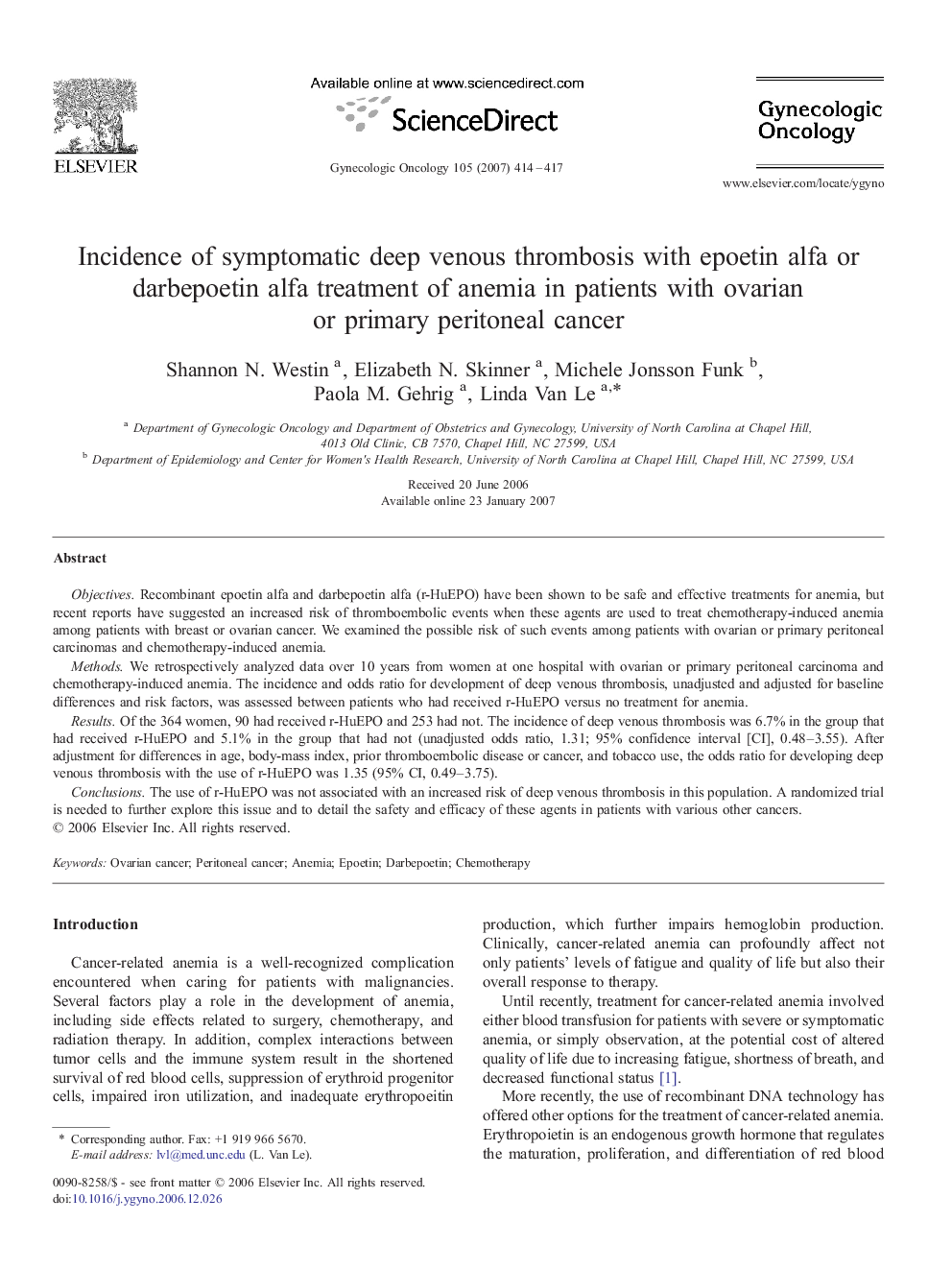| Article ID | Journal | Published Year | Pages | File Type |
|---|---|---|---|---|
| 3943450 | Gynecologic Oncology | 2007 | 4 Pages |
Objectives.Recombinant epoetin alfa and darbepoetin alfa (r-HuEPO) have been shown to be safe and effective treatments for anemia, but recent reports have suggested an increased risk of thromboembolic events when these agents are used to treat chemotherapy-induced anemia among patients with breast or ovarian cancer. We examined the possible risk of such events among patients with ovarian or primary peritoneal carcinomas and chemotherapy-induced anemia.Methods.We retrospectively analyzed data over 10 years from women at one hospital with ovarian or primary peritoneal carcinoma and chemotherapy-induced anemia. The incidence and odds ratio for development of deep venous thrombosis, unadjusted and adjusted for baseline differences and risk factors, was assessed between patients who had received r-HuEPO versus no treatment for anemia.Results.Of the 364 women, 90 had received r-HuEPO and 253 had not. The incidence of deep venous thrombosis was 6.7% in the group that had received r-HuEPO and 5.1% in the group that had not (unadjusted odds ratio, 1.31; 95% confidence interval [CI], 0.48–3.55). After adjustment for differences in age, body-mass index, prior thromboembolic disease or cancer, and tobacco use, the odds ratio for developing deep venous thrombosis with the use of r-HuEPO was 1.35 (95% CI, 0.49–3.75).Conclusions.The use of r-HuEPO was not associated with an increased risk of deep venous thrombosis in this population. A randomized trial is needed to further explore this issue and to detail the safety and efficacy of these agents in patients with various other cancers.
